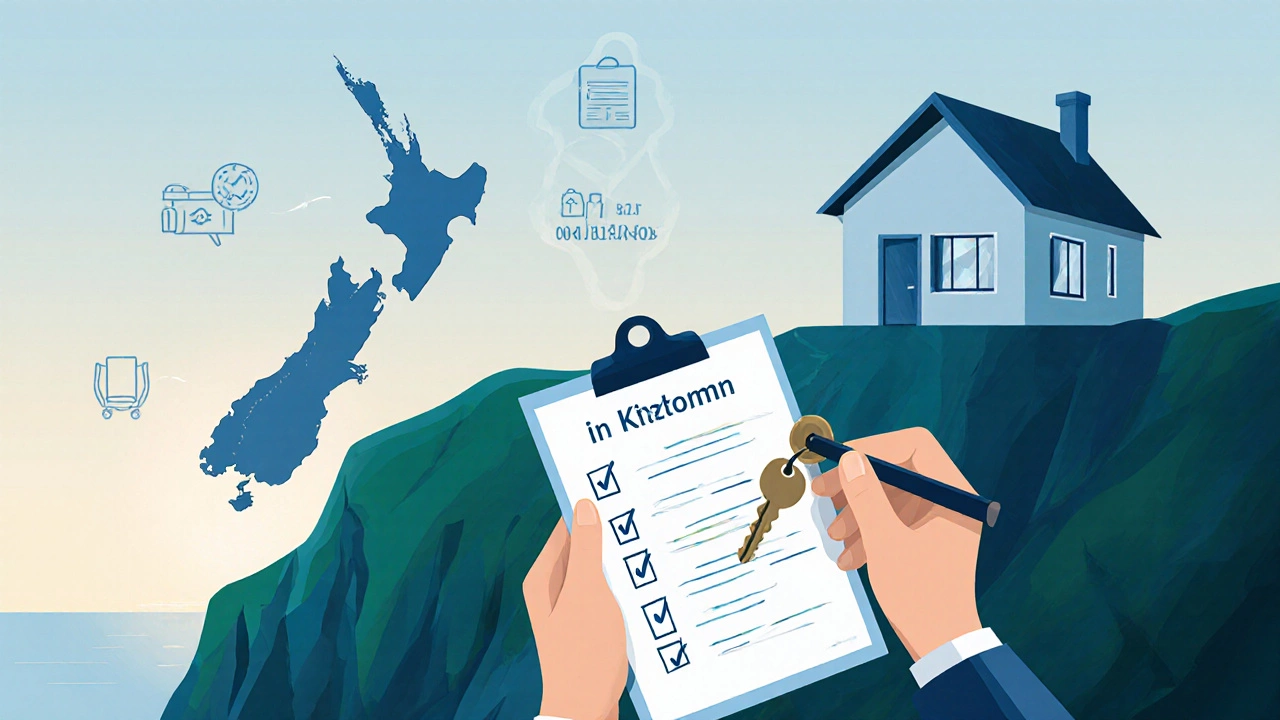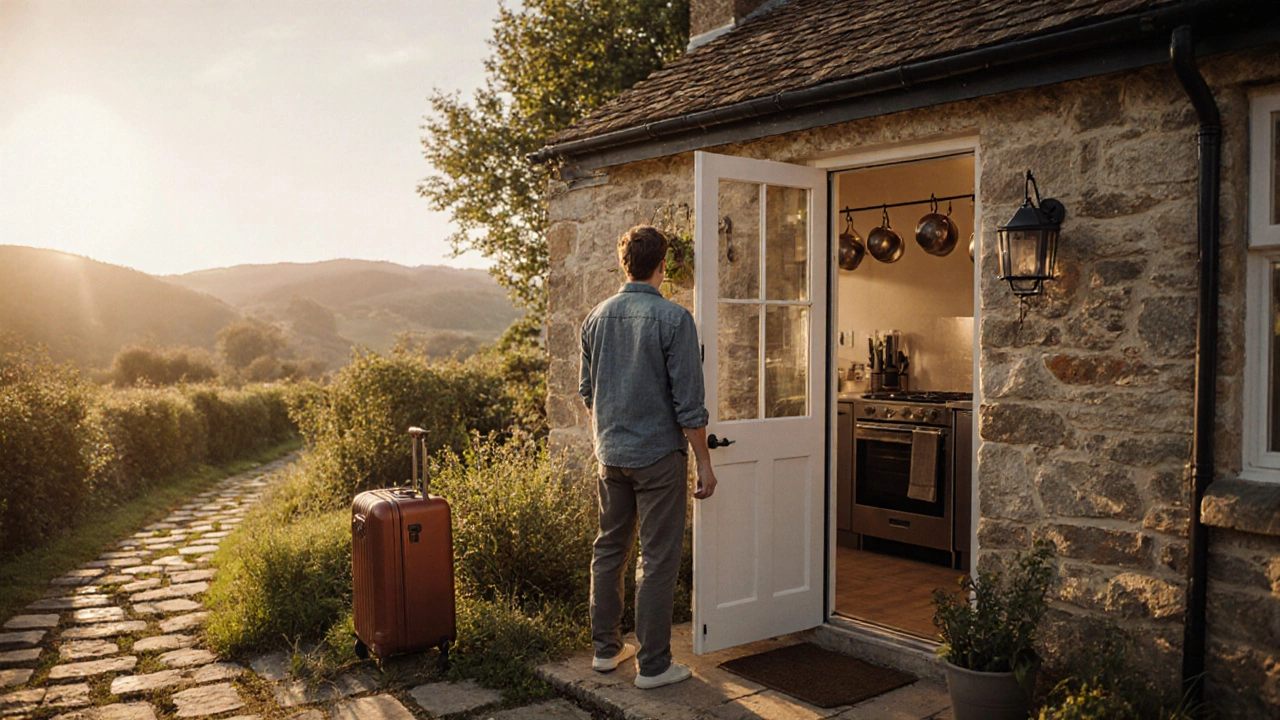Self-Catering Property Comparison Tool
Self-Catering
Independent kitchen, flexible meals, private space
- Full kitchen access
- Guest prepares own meals
- Entire property to yourself
- Cost-effective for groups
Hotel
On-site dining, daily housekeeping, shared facilities
- Room service or restaurants
- Daily cleaning included
- Shared corridors and amenities
- Convenient for short stays
Serviced Apartment
Mini-kitchen, weekly cleaning, apartment-style
- Mini-kitchen with limited appliances
- Weekly cleaning service
- Apartment-style layout
- Good for longer stays
Key Benefits of Self-Catering Properties
- Cost Savings: Prepare meals at a fraction of restaurant prices
- Space & Privacy: Multiple bedrooms and separate dining area
- Flexibility: Cook and eat whenever you want
- Local Experience: Shop and cook regional dishes
- Pet-Friendly: Many allow pets where hotels don't
Essential Checklist Before Booking
- Kitchen has essential utensils (pots, pans, knives)
- Wi-Fi speed is sufficient for your needs
- Check occupancy limits for your group size
- Verify cleaning service availability and cost
- Confirm local council registration status
- Review house rules regarding noise and guests
Common Misconceptions
Myth: You must cook every meal
Reality: Many guests eat out and use kitchen only for breakfast or snacks
Myth: All self-catering homes are cheaper
Reality: Luxury properties can cost more than hotels; compare total cost
When you’re hunting for a place to stay on holiday, you’ll often see the term self-catering property pop up on listings. But what does it actually mean? In plain English, a self-catering property is a rental unit-usually a house, apartment, or cottage-where guests have access to a fully equipped kitchen and are expected to prepare their own meals rather than relying on on‑site restaurant services.
Defining the Self‑Catering Property
Self‑catering property is a type of short‑term accommodation that provides guests with independent kitchen facilities, allowing them to cook and eat at their convenience. This model sits between hotels, which typically include restaurant or room‑service options, and serviced apartments, which may offer housekeeping but still emphasize self‑service.
How It Differs from Other Lodging Types
| Feature | Self‑Catering Property | Hotel | Serviced Apartment |
|---|---|---|---|
| Kitchen Access | Full kitchen with appliances | Room service or on‑site restaurant only | Mini‑kitchen, sometimes limited appliances |
| Meal Preparation | Guests cook their own meals | Meals provided by hotel staff | Guests may cook, but space is smaller |
| Cleaning Service | Usually optional or fee‑based | Daily housekeeping standard | Weekly cleaning, optional daily |
| Privacy Level | Entire property to yourself | Shared corridors, possibly shared facilities | Often entire unit, but building amenities shared |
| Typical Guests | Families, groups, long‑stay travelers | Business travelers, short‑stay tourists | Expats, corporate assignments |
Core Features You’ll Find in a Self‑Catering Property
- Kitchen (stove, oven, refrigerator, microwave, cookware, utensils)
- Living area with seating and often a TV
- Bedrooms with beds, linens, and storage
- Bathroom with towels, toiletries, and sometimes a hairdryer
- Wi‑Fi and basic entertainment options
- Dedicated parking space or driveway
- Optional cleaning service for an extra fee

Benefits of Choosing a Self‑Catering Property
Why would a traveler pick a self‑catering place over a hotel? Here are the top advantages:
- Cost Savings: Eating out for every meal can quickly eat up your budget. A well‑stocked kitchen lets you prepare breakfast and dinner at a fraction of restaurant prices.
- Space & Privacy: Most self‑catering rentals offer multiple bedrooms, a living area, and a separate dining space. Perfect for families or groups who need room to spread out.
- Flexibility: No set meal times, no dress codes for the pool bar. Cook when you want, eat when you’re hungry.
- Local Experience: Shopping at local markets and cooking regional dishes gives you a deeper taste of the destination.
- Pet‑Friendly Options: Many self‑catering homes allow pets, something hotels often restrict.
Legal & Regulatory Considerations (Especially in NewZealand)
In NewZealand, self‑catering rentals fall under the umbrella of short‑term accommodation. Below are the main rules you should be aware of:
- Local Council Registration: Most city or district councils require owners to register the property and pay a modest accommodation tax.
- Occupancy Limits: The council sets a maximum number of guests based on bedroom count and fire safety standards.
- Health & Safety Inspections: Gas appliances, smoke alarms, and carbon monoxide detectors must meet national standards.
- Insurance Requirements: Property owners typically need short‑term rental insurance to cover guest injuries and accidental damage.
For guests, it’s a good idea to verify that the listing includes proof of these registrations-most reputable platforms display a “Council‑approved” badge.
Booking a Self‑Catering Property: Step‑by‑Step Guide
- Identify Your Priorities: Number of bedrooms, kitchen size, pet policy, proximity to attractions.
- Choose a Platform: Websites like Airbnb, Vrbo, or local NZ sites such as Bookabach specialize in self‑catering listings.
- Read the Full Description: Look for specifics on kitchen appliances, cleaning fees, and any house rules (e.g., no parties after 10pm).
- Check Reviews: Past guest reviews reveal whether the kitchen works, if Wi‑Fi is reliable, and how responsive the host is.
- Confirm Total Cost: Add the nightly rate, cleaning fee, council tax, and any extra guest charges. Some platforms show a final price before you book.
- Communicate With the Host: Ask about check‑in details, parking, and local grocery store recommendations.
- Secure Your Booking: Pay through the platform’s secure system to protect against fraud.
Checklist Before Arrival
- Print or save the host’s contact details and address.
- Confirm check‑in time and key handover method (lockbox, meet‑and‑greet).
- Know the nearest supermarket and opening hours.
- Verify that the kitchen includes basic utensils (pots, pans, knives).
- Inspect the property for any damage and report it within 24hours.
- Read the house rules regarding waste separation-NZ encourages recycling.

Common Misconceptions About Self‑Catering
Even seasoned travelers sometimes get confused. Let’s clear up three frequent myths:
- Myth: You have to cook every meal.
- Reality: Many guests eat out for lunch or dinner and just use the kitchen for breakfast or quick snacks.
- Myst: Self‑catering properties are always cheaper than hotels.
- Reality: Luxury villas with premium amenities can cost more per night; compare total cost, not just nightly rate.
- Myth: All self‑catering homes have the same standards.
- Reality: Quality varies widely; always read the description and view all photos before booking.
When a Self‑Catering Property Is Not the Best Choice
If you’re traveling solo for a short business trip, a hotel’s daily housekeeping and on‑site gym might be more convenient. Likewise, if you have limited mobility, a property without elevator access could pose challenges. In those cases, look for “accessible self‑catering” options or consider serviced apartments that blend independence with added services.
Frequently Asked Questions
What exactly is included in a self‑catering rental?
At minimum, you’ll get a fully equipped kitchen (stove, oven, fridge, cookware), sleeping areas, a bathroom, and basic linens. Some hosts also provide cleaning supplies, Wi‑Fi, and optional daily housekeeping for an extra fee.
Do I need to pay extra taxes or fees?
In NewZealand most short‑term rentals charge a regional accommodation tax, usually added to the final invoice. The host should disclose any cleaning fees, extra‑guest charges, or council taxes before you confirm the booking.
Can I bring my pet?
Pet policies vary. Some self‑catering homes welcome cats or small dogs, often for an additional cleaning surcharge. Always check the listing’s pet rule and ask the host if you’re unsure.
How do I handle garbage and recycling?
Most NewZealand rentals follow the national three‑bin system: landfill, recycling, and organics. The host usually leaves a short guide in the kitchen explaining collection days.
Is Wi‑Fi reliable in self‑catering homes?
Wi‑Fi quality varies by property. Look for listings that list “high‑speed broadband” or provide a speed test screenshot. If connectivity is critical, ask the host about the provider and average speeds.
Next Steps for Travelers
Now that you know what a self‑catering property really is, here’s how to move forward:
- Write down your must‑have amenities (e.g., dishwasher, pet‑friendly).
- Set a budget that includes nightly rate, cleaning fee, and council tax.
- Use trusted platforms, filter for “self‑catering” or “kitchen” in the amenities list.
- Read at least three recent reviews that mention the kitchen and Wi‑Fi.
- Contact the host with any specific questions-quick replies usually signal a reliable host.
Enjoy the freedom to whip up your own meals, soak up the local vibe, and stretch your travel dollars further. Happy vacationing!
